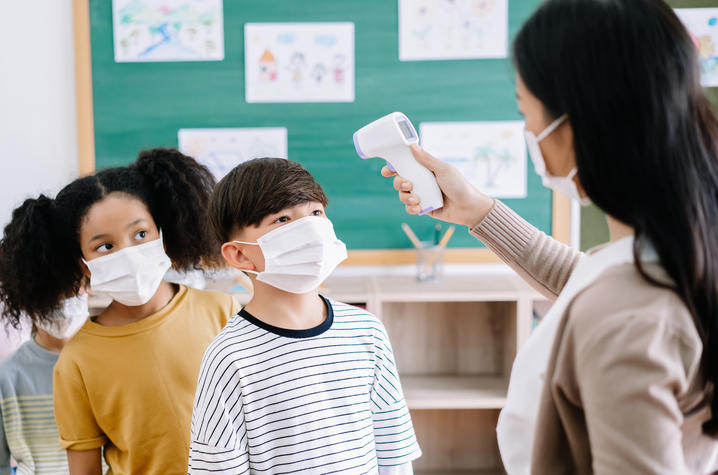How to Prepare Kids to Return to In-Person Learning

The University of Kentucky Public Relations & Strategic Communications Office provides a weekly health column available for use and reprint by news media. This week's column is by Meghan Marsac, Ph.D., a pediatric psychologist at Kentucky Children’s Hospital.
LEXINGTON, Ky. (March 8, 2021) – Returning to school will bring out different feelings in different kids. Some might be very excited and others quite nervous. Many will likely have mixed feelings. Some kids might be nervous about seeing their classmates or teachers, especially if your family has had very limited contact with others over the past year.
It might take some time for kids to get used to new rules or expectations at school. The workload might change, which can take time to adjust to. The distractions will be different and there will be longer periods of instruction, more than what your child might have become accustomed to.
Here are some tips to promote adjustment as your child settles back into their in-person learning routine:
- Give your child and yourself time to adjust to a new routine.
- Validate your child’s feelings of nervousness or sadness or excitement.
- Expect that everyone might be more tired than normal during the first few weeks. Consider planning low-key evenings and limiting extra activities as your child adjusts.
- Set aside 15 minutes with your child in the evening to listen to their day. Let them know you are available even if they don’t feel like sharing.
- Create extra space for hugs or snuggles, especially for young children.
Things to watch out for:
- Increased irritability
- Child withdrawing or isolating self
- Anger or frustration outbursts
- Change in appetite
- Sleep difficulties
- Ongoing challenges separating. Drop-off might be hard for a couple of days. For most kids, they will adapt quickly after parents have left or within a couple of days.
Keep in contact with your child’s teacher; they may be seeing behavior in your child that you don’t see at home. If you are worried about anything that seems different or off in your child, reach out to your pediatrician, school counselor or a behavioral health provider.
As the state’s flagship, land-grant institution, the University of Kentucky exists to advance the Commonwealth. We do that by preparing the next generation of leaders — placing students at the heart of everything we do — and transforming the lives of Kentuckians through education, research and creative work, service and health care. We pride ourselves on being a catalyst for breakthroughs and a force for healing, a place where ingenuity unfolds. It's all made possible by our people — visionaries, disruptors and pioneers — who make up 200 academic programs, a $476.5 million research and development enterprise and a world-class medical center, all on one campus.




